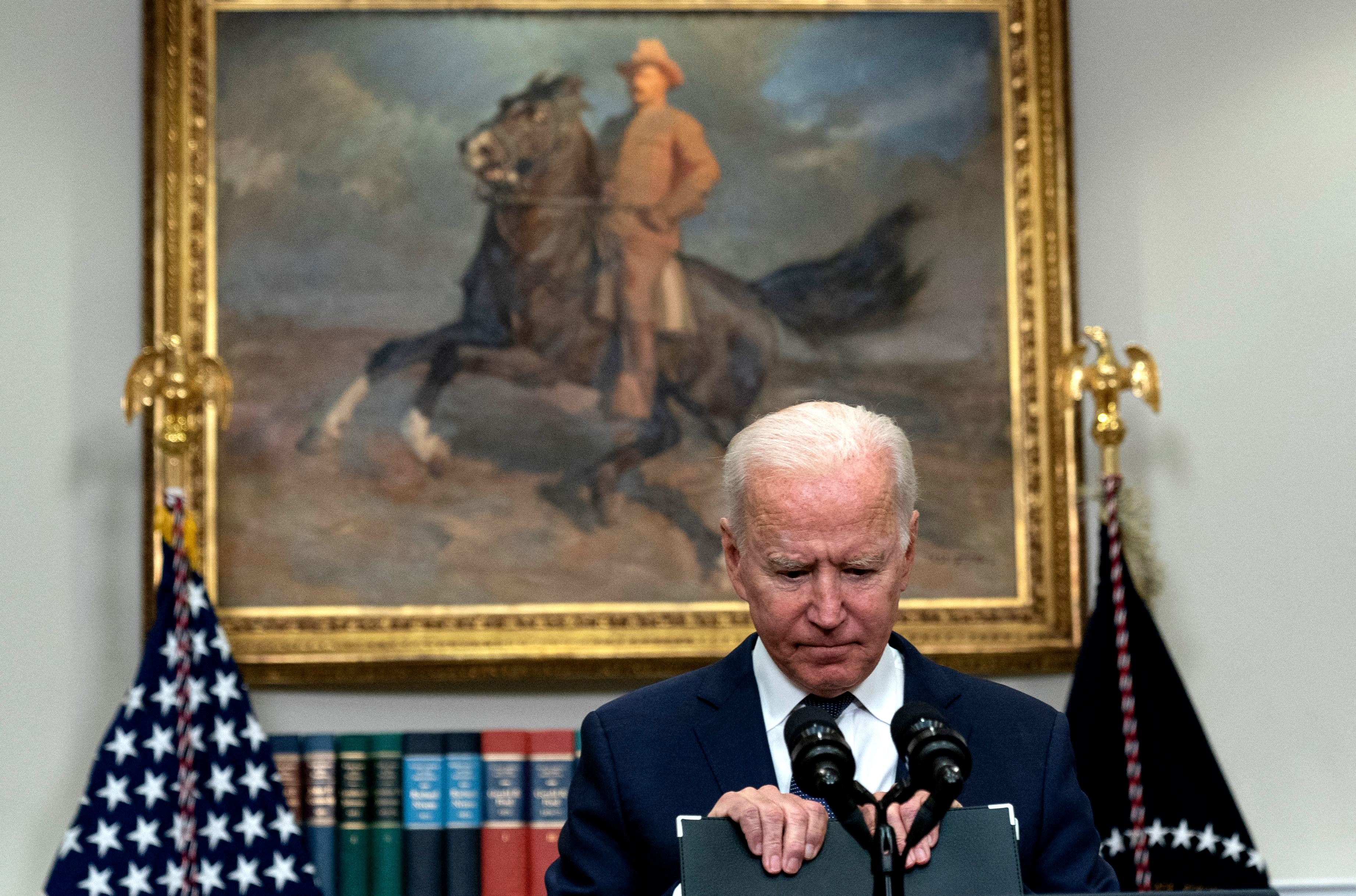How fiascos happen
When information changes, plans must, too


A free daily email with the biggest news stories of the day – and the best features from TheWeek.com
You are now subscribed
Your newsletter sign-up was successful
This is the editor's letter in the current issue of The Week magazine.
"When my information changes, I change my mind. What do you do, sir?" Some version of this quote, variously attributed to economists John Maynard Keynes or Paul Samuelson, should serve as a guiding principle for anyone trying to make wise decisions. Alas, it rarely does. We human beings hate being wrong — hate it with a passion. Even the most successful people often have brittle egos that can't withstand a change of mind, no matter how much contrary information pours in. The consequences are usually painful. Consider the chaos surrounding the U.S. withdrawal from Afghanistan. Whether or not you agree with ending that 20-year-old war, two things are clear: President Biden entered office believing that Afghanistan was worth no further sacrifice by soldiers like "my son, Beau." And when U.S. generals and some intelligence analysts warned the Afghan army and government could rapidly collapse, Biden dismissed that risk, telling Americans that scenario "is highly unlikely." He didn't expect the Taliban to control Kabul as vulnerable allied forces valiantly struggled to evacuate Americans and Afghan allies.
Biden's predecessor, of course, was unmatched in his refusal to absorb information that contradicted his whims and perceived self-interest. When COVID hit, President Trump's panicked insistence it would magically "go away" led to hundreds of thousands of unnecessary deaths. Several Republican governors are carrying on the Trumpian tradition, insisting that vaccination, masks, and not infecting others is a matter of "personal choice" — even as the highly infectious Delta variant fills their states' ICUs and crematoriums. Once again, more Americans are dying of COVID every three days than died in Afghanistan over 20 years. And millions of Americans are still insisting, against mountains of heartbreaking evidence, that getting a shot is more dangerous than getting COVID. They'd rather be hospitalized or dead than change their minds.
The Week
Escape your echo chamber. Get the facts behind the news, plus analysis from multiple perspectives.

Sign up for The Week's Free Newsletters
From our morning news briefing to a weekly Good News Newsletter, get the best of The Week delivered directly to your inbox.
From our morning news briefing to a weekly Good News Newsletter, get the best of The Week delivered directly to your inbox.
A free daily email with the biggest news stories of the day – and the best features from TheWeek.com
William Falk is editor-in-chief of The Week, and has held that role since the magazine's first issue in 2001. He has previously been a reporter, columnist, and editor at the Gannett Westchester Newspapers and at Newsday, where he was part of two reporting teams that won Pulitzer Prizes.
-
 Why is the Trump administration talking about ‘Western civilization’?
Why is the Trump administration talking about ‘Western civilization’?Talking Points Rubio says Europe, US bonded by religion and ancestry
-
 Quentin Deranque: a student’s death energizes the French far right
Quentin Deranque: a student’s death energizes the French far rightIN THE SPOTLIGHT Reactions to the violent killing of an ultraconservative activist offer a glimpse at the culture wars roiling France ahead of next year’s elections
-
 Secured vs. unsecured loans: how do they differ and which is better?
Secured vs. unsecured loans: how do they differ and which is better?the explainer They are distinguished by the level of risk and the inclusion of collateral
-
 The billionaires’ wealth tax: a catastrophe for California?
The billionaires’ wealth tax: a catastrophe for California?Talking Point Peter Thiel and Larry Page preparing to change state residency
-
 Bari Weiss’ ‘60 Minutes’ scandal is about more than one report
Bari Weiss’ ‘60 Minutes’ scandal is about more than one reportIN THE SPOTLIGHT By blocking an approved segment on a controversial prison holding US deportees in El Salvador, the editor-in-chief of CBS News has become the main story
-
 Has Zohran Mamdani shown the Democrats how to win again?
Has Zohran Mamdani shown the Democrats how to win again?Today’s Big Question New York City mayoral election touted as victory for left-wing populists but moderate centrist wins elsewhere present more complex path for Democratic Party
-
 Millions turn out for anti-Trump ‘No Kings’ rallies
Millions turn out for anti-Trump ‘No Kings’ ralliesSpeed Read An estimated 7 million people participated, 2 million more than at the first ‘No Kings’ protest in June
-
 ‘The Taliban delivers yet another brutal blow’
‘The Taliban delivers yet another brutal blow’Instant Opinion Opinion, comment and editorials of the day
-
 It is 'beyond time for us to seek bipartisan solutions' for Afghanistan
It is 'beyond time for us to seek bipartisan solutions' for AfghanistanInstant Opinion Opinion, comment and editorials of the day
-
 Ghislaine Maxwell: angling for a Trump pardon
Ghislaine Maxwell: angling for a Trump pardonTalking Point Convicted sex trafficker's testimony could shed new light on president's links to Jeffrey Epstein
-
 The last words and final moments of 40 presidents
The last words and final moments of 40 presidentsThe Explainer Some are eloquent quotes worthy of the holders of the highest office in the nation, and others... aren't
